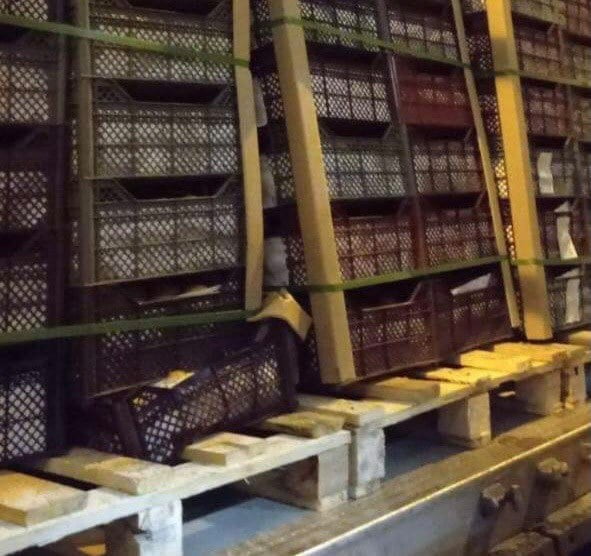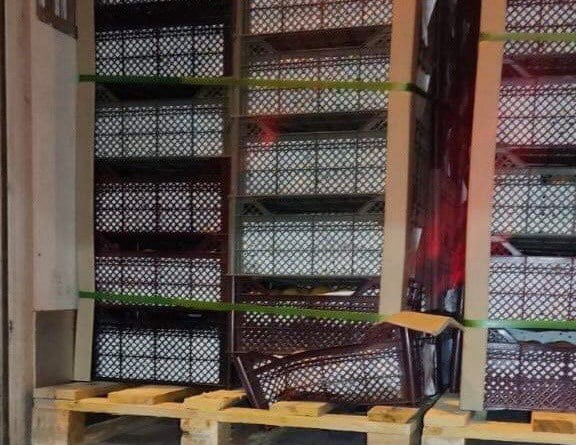According to EastFruit experts, the fruit and vegetable business of Uzbekistan has a number of weaknesses. One of them is expensive and low-quality pallets for fresh fruits and vegetables.
It would seem that nothing can be wrong with pallets, as it is not high technology! What problems can a bad pallet create? It turns out that it is not as simple as it seems, and it will be difficult for the Uzbek produce business to proceed in its development if the pallet problem is not solved.
Let’s start with the cost of pallets. Why are pallets expensive in Uzbekistan? There are no forests in Uzbekistan, wood is expensive, so pallets are also expensive. Pallet prices in Uzbekistan are on average twice as high as in Russia or Ukraine. Accordingly, higher pallet prices translate into lower competitiveness of Uzbek products. Uzbekistan loses from $100 to $200 on each truck only on the cost of pallets. This is the money that growers will not receive as a result, because prices are formed in the market regardless of costs.
The second problem is the weight of pallets and their reliability. Traders say Uzbek pallets are often lighter because local producers are trying to save wood. An Uzbek pallet often weighs around 12 kg, while a pallet of the same size in the EU weighs 16-20 kg. Naturally, if less wood or thinner boards are used, this leads to frequent breakdowns of pallets on the way. For fruit and vegetable products, this is disastrous and the losses here are often huge, not to mention the suffering reputation of a supplier and the country as a whole.

The third problem is the pallet assembly quality. Pallets are often not standard in size. A large error in their assembly is found that either does not allow placing the required amount of cargo in a truck meaning an increase in the cost of transportation, or leads to movement and displacement of the cargo. This is completely unacceptable when delivering fresh fruit and vegetables, since they are damaged and spoiled.
The fourth problem is large delays in the delivery of pallets. The shipment of products is often delayed for several days in active fruit export season just because there are no pallets. The capacities of Uzbek sawmills and factories for assembling wooden pallets are insufficient to meet the demand of exporters. This often leads to the complete failure of export contracts, especially when it comes to such perishable products as cherries or apricots.
Fedir Rybalko, international consultant to the Food and Agriculture Organization of the United Nations (FAO), believes that these problems are quite solvable. “Uzbekistan should attend to the standardization and certification of pallet production, and traders and exporters should carefully check them upon purchase. A good solution would be to create a pooling system for reusable plastic pallets. As a rule, they are much more reliable and durable, they have standard size and weigh much less than wooden pallets,” the expert says.
“It would seem that pallets are not important. However, given the volume of fruit exports from Uzbekistan, the total losses of the country from low-quality and expensive pallets reach several million or even tens of millions of dollars, not to mention reputational losses, which are very difficult to estimate and are the growers not the exporters that in the end pay these millions” says Fedir Rybalko.
Therefore, if you once again see the news that the export of fruits from Uzbekistan is declining, one of the reasons is likely to be problems with wooden pallets, their quality, cost and availability.
The use of the site materials is free if there is a direct and open for search engines hyperlink to a specific publication of the East-Fruit.com website.




